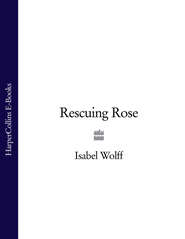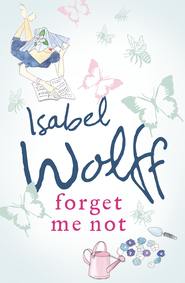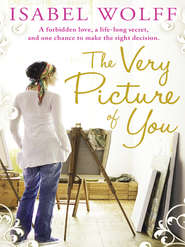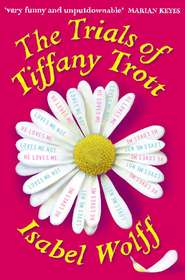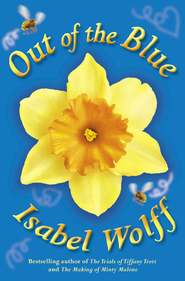По всем вопросам обращайтесь на: info@litportal.ru
(©) 2003-2024.
✖
Ghostwritten
Настройки чтения
Размер шрифта
Высота строк
Поля
Henry patted his head, grinning. ‘Vince has got rather more hair. You’ll meet my mother later – she’s just nipped over to Trelawn to see a friend. But in the meantime I’ll show you where you’re staying; if I could just hop in your car with you.’
Henry got in the passenger seat and I drove a few hundred yards down the lane to the modern cottage that I’d passed on the way up. I parked on the forecourt then Henry got out, opened the boot, and carried my suitcase to the semi-glazed front door.
There was a slate sign on the wall: Lanhay. The interior was quite plain, with wooden floors and neutral furnishings. On the walls were framed prints of flowers and fish – typical of what you might expect to find in a holiday house. But in one of the bedrooms was an original oil painting – a striking seascape. I stared at the churning blue and green water, low cliffs and jagged rocks.
Henry noticed me looking at it. ‘That’s by my son, Adam. He sells quite a few; in fact he’s having an exhibition the week after next, at Trennick.’
I shivered in recognition. ‘It’s the beach here, isn’t it?’
‘It is. How did you know? Have you just driven down there?’
‘No …’ I tried to quell the thudding in my ribcage. ‘I’ve been to Polvarth before.’
‘I see. Anyway, the house is simple,’ Henry remarked as we went downstairs again, ‘but comfy.’ He fiddled with the boiler, then touched the nearest radiator. ‘You’ve got everything you need: the washing machine’s there. Give the door a little thump if it won’t start. Dishwasher, microwave, fridge …’ He opened the latter, revealing milk, cheese, bacon, a dozen eggs, and a bottle of wine. ‘There’s some salad stuff as well, some veg, and a loaf of bread in the bread bin.’
‘That’s so kind – thank you.’
‘Tea and coffee’s here.’ He opened a cupboard. ‘But there’s a general store at Trennick for anything else you might want. It’s a couple of miles by road, or you can easily walk to it. You just go down to the beach, up the steps onto the cliff, then carry on round the coastal path for five minutes.’
‘Yes, I remember that path.’
‘Course you do – you’ve been here before. So when was that?’
‘Oh … years ago.’
‘Well we’re very glad that you’ve come again. Having my mother’s memoirs will mean a lot to her family; having said that, we’re not sure how forthcoming she’ll be.’ He smiled ruefully.
‘Well, I’ll try to draw out her story, but what she says is up to her.’
‘Of course,’ Henry agreed. ‘She has to feel happy with it.’
I set my laptop on the table. ‘This will be a good place to work. Is there a broadband connection?’
‘There is, but I’m afraid the phone only takes incoming calls.’
‘That’s okay – I’ve got my mobile.’
‘Just to warn you, the signal’s patchy: you get better reception if you stand in the lane.’
I walked to the window. There was a small garden, enclosed by a fence. In the centre of the lawn was a windswept cherry tree, crusted with tufts of green lichen, and, in the far corner, a battered-looking palm. On the other side of the fence a herd of tawny-coloured cattle grazed peacefully, occasionally lifting their heads, as if enjoying the view. Beyond that was the sea. I could see a scattering of white sails, and, to my right, the headland jutting out, like a prow.
‘It’s beautiful,’ I exclaimed. I had forgotten how beautiful it was.
‘It is,’ Henry agreed. ‘I still have to pinch myself after fifty-four years spent staring at it. Anyway, here are your keys. So come up to the farm at around seven and have supper with us.’
I thanked Henry, and promised that I would.
After Henry had left I texted Rick to say that I’d arrived. I wished that he could be with me now. If he were, I’d take him down to the beach and I’d finally tell him what had happened there all those years ago. I tried to imagine his reaction – shock, swiftly changing to bewilderment that I could have kept my secret from him for so long.
I sat at the garden table as the shadows stretched across the lawn. The sea was pewter now, patched with silver where the sun’s rays streamed through a bank of low cloud. A week ago I’d been at Nina’s wedding; now her wedding had brought me back to Polvarth. I repressed a shudder.
I went inside and unpacked. As I opened my wash bag I looked at the pink blister pack of pills that Rick had come to hate but which made me feel safe. I took one, then, having showered and changed, I walked the few hundred yards up to the farm. I was looking forward to meeting Klara. What would she be like, I wondered. Would she be easy to work with?
The knocker on the farmhouse door was in the shape of a hand. I hesitated for a moment then rapped.
Henry, now in green cords and a blue checked shirt, ushered me into the large square kitchen with its red-and-black floor tiles, cream-coloured Aga and pine furniture. He took my jacket then introduced me to his wife, Beth.
‘Welcome, Jenni,’ she said. She was a fair-haired, cheerful woman in her mid-fifties. ‘Is everything okay at Lanhay?’
‘Oh yes, it’s great, thank you. It’s a gorgeous cottage.’
Henry smiled at the elderly woman who was setting the table. ‘Mum, meet Jenni.’ The woman set down the last plate, then turned and held out her hand.
I took it. ‘Hello, Mrs Tregear. I’ve been looking forward to meeting you.’
‘Please, call me Klara.’
Klara Tregear was slim and upright, with high cheekbones and blue-grey eyes; her hair was a pure white, cut to the chin, and held with a clip, like the little girl on the train. Her face was seamed with age, and tanned from the sun and wind.
‘So …’ The smile she gave me was anxious. ‘You’re going to take me down memory lane.’ Her voice was soft, with a slight Dutch inflection. ‘I find the thought a little daunting.’
‘I completely understand. But I’ll try to make the process as pleasant as possible. Just think of it as a long conversation with someone who’s really interested in you.’
‘So you will be hanging on my every word,’ she remarked wryly.
‘I certainly will.’ I glanced around the kitchen. ‘Will we be doing the interviews here?’
‘No – at my flat.’ Klara pointed through the window to the barn. ‘I live above the shop. But please … you must be hungry.’ She gestured to the table.
As I sat down I looked through the French windows. Clumps of agapanthus and scarlet sedums framed the long lawn. Beyond the garden, the land sloped down to the sea, indigo in the deepening dusk. A distant light glimmered from a boat or buoy.
Klara poured me a glass of wine, then sat down beside me. ‘How long will we talk for each time?’
‘It’s quite an intense process, as you can imagine.’ She nodded. ‘I usually aim to record three hours of material a day. Could we do two hours in the mornings? Would that be okay?’
‘Yes, after eleven would be best, when the shop shuts.’
‘Then another hour in the afternoon?’ I suggested.
‘That would be fine. Tomorrow, being Sunday, we’re closed, so that’s a good day for us to start. I go to church first thing but I’m usually back by ten. Could you come then?’
‘Ten will be fine.’ I sipped the wine and felt my tension slip away. If I could just keep a grip on my emotions, I told myself, I’d be able to do this job.
Beth carried a big earthenware dish to the table. ‘I hope you like fish pie, Jenni.’ She put it on a trivet.
‘I do, very much.’
‘Then help yourself.’






